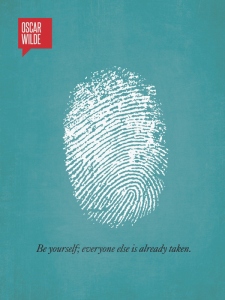Monthly Archives: October 2014
Just in case you are wondering, a short history on Halloween and why we do what we do: Happy Halloween! and Happy Autumn Festivities! (Video Level B1 and up)
Photo source: Le Halloween Postcard Vintage Style
The other day, I came across this quote from the director Nora Ephron:
“We have a game we play when we’re waiting for tables in restaurants, where you have to write the five things that describe yourself on a piece of paper. When I was [in my twenties], I would have put: ambitious, Wellesley graduate, daughter, Democrat, single. Ten years later not one of those five things turned up on my list. I was: journalist, feminist, New Yorker, divorced, funny. Today not one of those five things turns up in my list: writer, director, mother, sister, happy.”
It is not easy to create only 5 adjectives to describe yourself, but here go mine: Determined, Optimistic, Citizen of the World, Teacher, Learner
So… it’s your turn, what are 5 adjectives that best describe you RIGHT NOW?
And to wrap up, a mini-lesson on using the reflexive pronouns:
Reflexive (adjective): To reflect back on a subject (like a mirror)
So, if your subject is the same as your object, you need to use the reflexive. Imagine your subject looking into a mirror and seeing “itself”: He sent himself an email vs They sent him an email (the subject is not the same) Subject object Subject object
Here’s a chart of all the reflexives:
I = myself I opened the shop myself
You= Yourself Please, make yourself at home
He= Himself John sent himself a copy
She= Herself Anna helped herself to seconds (she served herself another dish)
It= Itself The dog injured itself playing.
Note! Plurals must be used with the “selves” They= Themselves They drove themselves to the airport. We= Ourselves We told ourselves we would never do that again. You=Yourselves You can do your homework yourselves.
Now try some of these exercises: http://www.englisch-hilfen.de/en/exercises/pronouns/reflexive_pronouns.htm
http://www.5minuteenglish.com/jun3.htm
http://a4esl.org/q/j/tm/fb-reflexive.html
Photo Source: http://www.designyourway.net/drb/famous-quotes-illustrated-through-minimalist-posters/
In the world of business and frequent meetings, you will receive a lot of information. So, we always suggest you to stay away from (avoid/don’t use) the sentence, “I don’t understand.” That can so easily be interpreted as, “I don’t speak English” and we know that you do speak English and are trying your very best when doing it.
So, let us recommend some expressions you can use when you don’t understand something:
From Formal to Informal:
I beg your pardon?
I’m sorry, could you run that by me again?
I’m not sure I understand your point.
I’m not sure I know what you mean.
Could you be more specific?
Could you elaborate on that?
Would you give me an example?
Excuse me?
Important! Avoid using “What?” It is considered very rude or impolite
If you think you heard it, but want to make sure it is correct:
If I understood correctly, you have said…
Let me see if I have that right…(repeat what they have said to you)
Do you mean…?
In other words, what you are saying is…
Finally, if someone does not understand you, here are some helpful expressions:
Allow me to explain myself.
Let me put it differently. What I was trying to say was…
In other words…
Sorry, let me say that again.
A short video on 5 ways to listen better (a fascinating video for levels B1 and up)
A short podcast on asking for clarifications (Level A2 and up)
Great tip on how to take control of the English Language
Photo Source: http://notesondesign.tumblr.com/page/18





